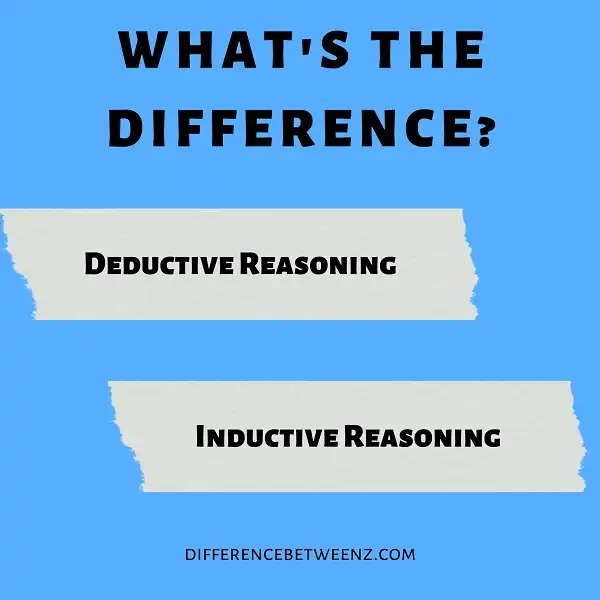Deductive reasoning and inductive reasoning are both methods of logical thinking, but they’re actually quite different. Deductive reasoning is when you start with a general statement (the premises) and then use them to come to a specific conclusion. Inductive reasoning is when you start with specific observations and then gradually build up to more general statements. So, what’s the difference? Let’s take a closer look.
What is Deductive Reasoning?
Deductive reasoning is a logical process in which a conclusion is drawn from one or more premises. The Deductive Reasoning process typically involves making an assertion based on evidence and then testing that assertion against known facts. If the Deductive Reasoning process is successful, then the conclusion can be said to be logically valid.
- Deductive reasoning is often used in mathematical proofs, legal arguments, and scientific experiments. In each of these cases, Deductive Reasoning can be used to arrive at a sound conclusion.
- In informal settings, Deductive Reasoning is often used to make judgments about someone or something based on limited information. For example, if a person has been observed acting suspiciously, Deductive Reasoning may be used to conclude that the person is up to no good.
- Deductive Reasoning can be an invaluable tool for drawing logical conclusions. However, it is important to remember that Deductive Reasoning is only as good as the premises upon which it is based. If the premises are inaccurate or incomplete, then the conclusion of the Deductive Reasoning process may also be inaccurate or incomplete.
What is Inductive Reasoning?
- Inductive reasoning is a type of logic that is used to form conclusions based on limited evidence. Inductive reasoning starts with a set of observations and then uses those observations to form a general conclusion.
- For example, if you observe that the sun has risen every day for the past week, you might use inductive reasoning to conclude that the sun will rise tomorrow.
- Inductive reasoning is often used in scientific research, as scientists use observed patterns to formulate hypotheses about how the world works. While inductive reasoning can be useful, it is important to remember that it is based on limited evidence, and so it can sometimes lead to false conclusions.
Difference between Deductive Reasoning and Inductive Reasoning
Deductive reasoning and inductive reasoning are two different approaches to logic.
- Deductive reasoning is a top-down approach that starts with a general principle and applies it to a specific situation.
- In contrast, inductive reasoning is a bottom-up approach that starts with specific observations and draws conclusions from them.
- Deductive reasoning is considered more Structured and reliable than inductive reasoning because it is less prone to error.
- However, inductive reasoning can be more flexible and creative, making it better suited for exploratory tasks such as generating hypotheses.
Ultimately, both deductive and inductive reasoning are important tools for scientific inquiry, and the best scientists use both approaches in their work.
Conclusion
It’s important to understand the difference between deductive and inductive reasoning when it comes to making decisions. Deductive reasoning is a logical process that starts with a general statement (the premises) and moves to a specific conclusion. Inductive reasoning, on the other hand, begins with specific observations and then draws general conclusions from them. When it comes to sales, using deductive reasoning can help you make confident decisions about what products or services to offer your customers. Inductive reasoning can be helpful in understanding customer behavior, but it should not be used as the sole basis for decision-making.


